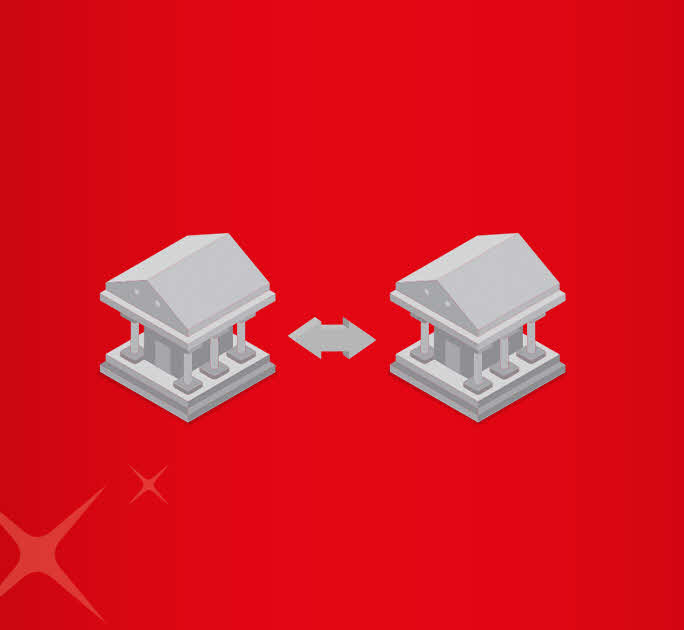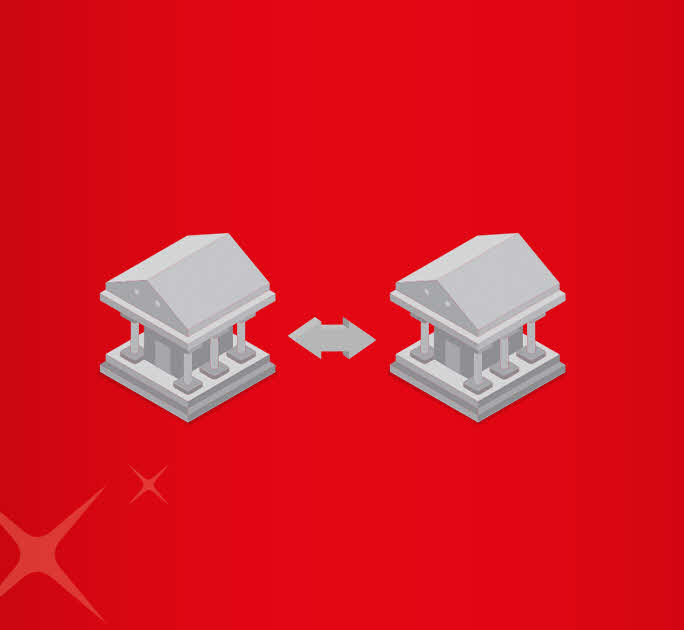- Save
- Invest
- Borrow
- Pay
- More
- Customer Services

What Is NEFT Limit? Minimum Limit, Maximum Limit & Charges
Examining NEFT Limits and the maximum transfer amounts.
Key Takeaways
- NEFT is short for National Electronic Funds Transfer – a popular fund transfer method.
- Over 1.5 lakh Indian bank branches are NEFT-enabled.
- Different banks may have different NEFT limits based on retail or third-party transactions.
- You can transfer a maximum amount of INR 50,000 for cash transactions at bank branches.
- The RBI has not specified a limit on the number of cash transactions you can make.
The National Electronic Funds Transfer (NEFT) is a fund transfer method launched by the Reserve Bank of India (RBI). With most banks being NEFT-enabled, NEFT has established itself as the preferred mode of money transfer in India. Such transfers are time-saving, economical, and available across the country. Let us understand more about NEFT and NEFT transaction limits.
What is NEFT Transfer Limit?
NEFT (National Electronic Funds Transfer) is a popular electronic payment system in India that allows fund transfers between banks. One key feature of NEFT is the flexibility it offers in transfer amounts, with no fixed upper or lower NEFT transfer limits mandated by the Reserve Bank of India (RBI). However, certain NEFT limits may apply based on bank policies and transaction types.
If you are looking to make the most of your savings, it’s important to consider the savings account interest rates offered by your bank alongside convenient fund transfer options like NEFT.
NEFT Minimum Limit
The RBI has not prescribed a minimum amount for NEFT transactions. This means you can transfer as little as INR 1 through NEFT. Nevertheless, some banks might set their own NEFT minimum limits, so it is advisable to check with your bank before initiating a transfer.
NEFT Maximum Limit
There is no RBI-mandated maximum limit for NEFT transfers. However, banks are permitted to impose their own NEFT maximum limits per transaction or per day. Additionally, cash-based NEFT transactions have a limit of INR 50,000 per transfer. For higher amounts, electronic transfers via NEFT can be used without restrictions, subject to individual bank policies.
NEFT Transfer Limit Per Day
While the Reserve Bank of India (RBI) does not impose a fixed daily limit on NEFT transfers, individual banks may set their own maximum limits on the total amount that can be transferred in a day. These NEFT daily limits vary across banks and account types. It is advisable to check with your bank regarding the specific NEFT limit per day applicable to your account to avoid transaction failures.
NEFT Transfer Timings
NEFT transactions are processed in hourly batches throughout the day. Currently, NEFT services operate 24 hours a day, seven days a week, including holidays, so there is effectively no NEFT time limit restricting when you can initiate transfers. This continuous availability allows customers to make fund transfers at any time.
However, it is important to note that individual banks may impose their own NEFT payment limit per transaction or per day, which can vary depending on the bank’s policies. Transactions typically settle within a few hours, depending on the batch processing schedule of the banks involved.
NEFT Charges & Fees
The RBI levies zero charges for online NEFT Transfers. Per RBI guidelines, banks too are not permitted to levy a charge for online NEFT Transfers. As such, you do not have to pay anything for NEFT transactions made via internet banking or mobile banking. Moreover, no charges are levied on the amount credited to the beneficiary for inward transactions.
That said, if you opt for offline NEFT transfers, for which you have to depend on the bank, you need to pay a nominal fee based on your chosen NEFT amount limit. Here is a schedule of charges:
|
For transactions up to INR 10,000 |
NEFT charges should not exceed INR 2.50 + GST |
|
For transactions above INR 10,000 up to INR 1 lakh |
NEFT charges should not exceed INR 5.00 + GST |
|
For transactions above INR 1 lakh up to INR 2 lakh |
NEFT charges should not exceed INR 15.00 + GST |
|
For transactions above INR 2 lakh |
NEFT charges should not exceed INR 25.00 + GST |
You can make an NEFT cash transfer without holding an account. Simply visit the NEFT-enabled bank branch and fill an NEFT transfer form. Since this too is a cash transfer, the NEFT amount limit is INR 50,000 per transaction.
Inward Transactions
Inward transactions refer to funds being credited to your bank account from another account, typically through electronic transfer methods such as NEFT, RTGS, or IMPS. When you receive an inward transaction, the amount is deposited directly into your account and is usually available for immediate use, depending on the bank’s processing times. It is important to verify the source and authenticity of the inward transfer to ensure it is legitimate.
Outward Transactions
Outward transactions involve transferring funds from your bank account to another account. This can be done through various modes like NEFT, RTGS, IMPS, or cheque payments. When initiating an outward transaction, you must provide accurate beneficiary details, including the account number and IFSC code, to ensure successful transfer. Banks often require authentication such as OTP or PIN to authorize outward transactions for security purposes.
DBS Banks makes it easy to perform outward transactions via NEFT, RTGS, or IMPS. Consider opening a bank account online and start managing your funds seamlessly.
Features and Benefits of NEFT
- You can make NEFT transfers all year round.
- NEFT operates in batches at intervals of 30-minutes, throughout the day.
- The RBI notifies you when the NEFT provision is non-operational.
- NEFT can be used to pay credit card bills, loan EMIs, make inward foreign exchange remittances, and transfer funds to your savings account.
- With over 1.5 lakh NEFT-enabled banks in India, this fund transfer method comes with PAN India coverage
Final Note
The primary benefit of NEFT is the absence of charges for online transfer with no maximum NEFT transfer limit. It is ideal for high-value, convenient transactions, crediting beneficiary accounts in 30 minutes. With NEFT, you can initiate online fund transfers of any amount of money at zero costs, whereas the NEFT charges for offline transfers are minimal.
Consider opening a savings account DBS Bank to enjoy high interest rates as high as 5.5% p.a. and easy fund transfers. You can open savings account online quickly and securely.
*Disclaimer: This article is for information purposes only. We recommend you get in touch with your income tax advisor or CA for expert advice.











